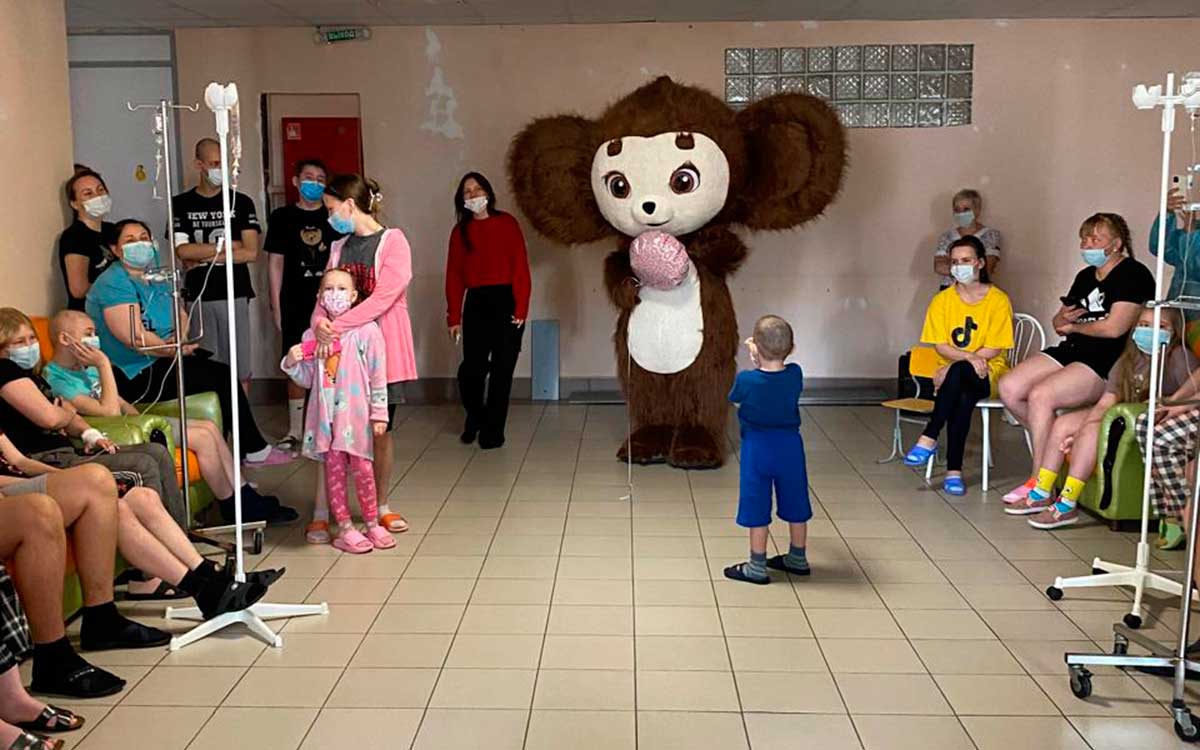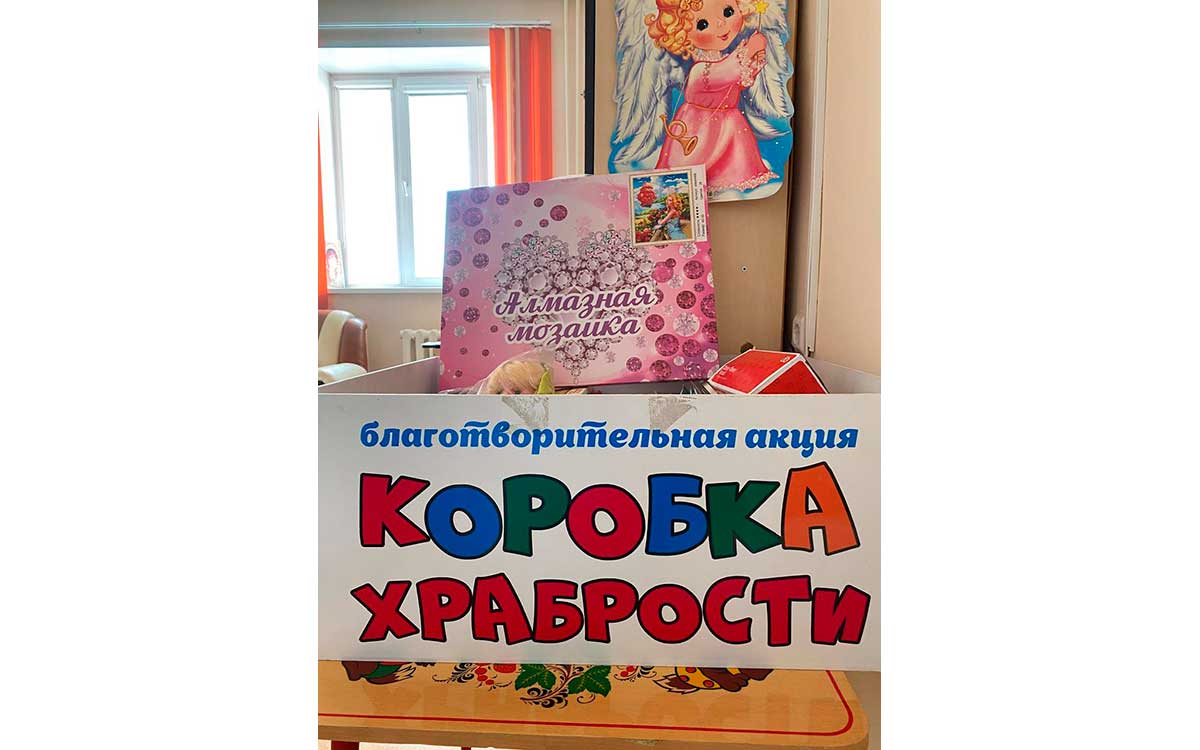Volunteering to nurture kindness through being helpful
Elvira Belyak has been working at Nornickel for eight years. Since 2022, she has led a volunteer team that collects plastic bottle caps to donate for recycling. The project originally conceived as a small initiative grew into a large-scale movement that spread way beyond the Trans-Baikal Division.
– How did the project start?
– First, we started a volunteer team and called it Bagul, after wild rosemary (“bagulnik” in Russian) which is a symbol of the Trans-Baikal Territory. The team was initially formed of 13 people. We decided to start with something small: organize a competition between Bystrinsky GOK business units to collect plastic bottle caps.
In Chita, there is a plant called “Green Environment” (formerly “Smart Environment”) that recycles plastic into useful objects: bins, benches, and outdoor-use vases. The plastic used to make bottle caps is just right for this purpose. Unlike plastic bottles, for example, they are also small and easy to bring to the factory. This is how the Caps of Kindness project originated.
– First, we started a volunteer team and called it Bagul, after wild rosemary (“bagulnik” in Russian) which is a symbol of the Trans-Baikal Territory. The team was initially formed of 13 people. We decided to start with something small: organize a competition between Bystrinsky GOK business units to collect plastic bottle caps.
In Chita, there is a plant called “Green Environment” (formerly “Smart Environment”) that recycles plastic into useful objects: bins, benches, and outdoor-use vases. The plastic used to make bottle caps is just right for this purpose. Unlike plastic bottles, for example, they are also small and easy to bring to the factory. This is how the Caps of Kindness project originated.
– Why is the project so popular?
– It came as a surprise to us. Everybody has joined us, including top managers and employee's children. We even had people 'complain' that all the bottles in their fridge were missing caps! We also collected caps at the office. Environmentalists are very grateful to us as the company sends the plastic bottles to recycling. Bottles without caps are much easier to compress.
In our first year, we put up benches made of “our” plastic in the park with the approval of Chita Central District Administration. This could be the reason for why the project is so popular: when people see that the caps are not just carried away but used for a purpose, they get motivated. And of course, there is competition.
– It came as a surprise to us. Everybody has joined us, including top managers and employee's children. We even had people 'complain' that all the bottles in their fridge were missing caps! We also collected caps at the office. Environmentalists are very grateful to us as the company sends the plastic bottles to recycling. Bottles without caps are much easier to compress.
In our first year, we put up benches made of “our” plastic in the park with the approval of Chita Central District Administration. This could be the reason for why the project is so popular: when people see that the caps are not just carried away but used for a purpose, they get motivated. And of course, there is competition.
– Where is the project now?
– We have 12 schools in the project. Kids bring in their parents, parents invite co-workers, so now we have a full-blown community of those who care.
The schools take the collected plastic to the plant on their own. In a special journal, they record the quantities brought in by each school. There was this one school that collected one tonne of caps! Overall, by the end of 2024, the schools collected more than two tonnes of caps.
The project has been running for three years. We thought about wrapping it up but the students and people at Nornickel asked us for more time. We couldn't say no.
– How do you reward your competition winners?
– The company allocates the money for prizes: RUB 100,000 for the first place, RUB 50,000 for the second and RUB 30,000 for the third. The winners get certificates and can spend the money on what they need. Schools usually do territory improvements and procure educational equipment. Our business units buy useful items for common comfort and benefit.
The Green Environment plant also provides prizes. For the fourth place and below, they give the pieces made by the plant: bins, planters, and benches.
– Why did you call your project 'Caps of Kindness'? Isn't it more about usefulness rather than kindness?
– Surprisingly, the collection of plastic entailed many other activities. From day one, we have donated the money that we get from the plant for caps to charity. At schools and even kindergartens, our team teaches lessons on environmental awareness. We explain the environmental damage from plastic, the benefits of segregated waste collection, and ways to protect the Arctic.
In 2023 and 2024, together with Sber, we organized a holiday on Children's Day at the Chita Oncology Center. We regularly visit a rehabilitation center for children from dysfunctional families, help the Food of Life center by delivering food for low-income and homeless people.
So, the Caps of Kindness project did bring together the people who want to make a difference by helping nature and communities.
– We have 12 schools in the project. Kids bring in their parents, parents invite co-workers, so now we have a full-blown community of those who care.
The schools take the collected plastic to the plant on their own. In a special journal, they record the quantities brought in by each school. There was this one school that collected one tonne of caps! Overall, by the end of 2024, the schools collected more than two tonnes of caps.
The project has been running for three years. We thought about wrapping it up but the students and people at Nornickel asked us for more time. We couldn't say no.
– How do you reward your competition winners?
– The company allocates the money for prizes: RUB 100,000 for the first place, RUB 50,000 for the second and RUB 30,000 for the third. The winners get certificates and can spend the money on what they need. Schools usually do territory improvements and procure educational equipment. Our business units buy useful items for common comfort and benefit.
The Green Environment plant also provides prizes. For the fourth place and below, they give the pieces made by the plant: bins, planters, and benches.
– Why did you call your project 'Caps of Kindness'? Isn't it more about usefulness rather than kindness?
– Surprisingly, the collection of plastic entailed many other activities. From day one, we have donated the money that we get from the plant for caps to charity. At schools and even kindergartens, our team teaches lessons on environmental awareness. We explain the environmental damage from plastic, the benefits of segregated waste collection, and ways to protect the Arctic.
In 2023 and 2024, together with Sber, we organized a holiday on Children's Day at the Chita Oncology Center. We regularly visit a rehabilitation center for children from dysfunctional families, help the Food of Life center by delivering food for low-income and homeless people.
So, the Caps of Kindness project did bring together the people who want to make a difference by helping nature and communities.
– What other projects has the Bagul team participated in?
– We try to help everyone who asks. A year ago, we cleaned up and did landscaping work at Lake Kenon in Chita. We helped restore the children's sports camp. Together with Smart Environment, we set up benches. Located in a very picturesque place, the camp will host both children and adult residents.
As part of the “Those Who Care” project, joined by the Green Island team, we developed an eco-project in our company. Bins for plastic, tin cans and other waste have already been put up at the site.
– What does volunteering mean to you?
– I feel that it's good for the soul. If you help others, someone will help you, too. Doing good will always pay, if not immediately then later. I truly believe it is possible to raise an eco-conscious generation. The kids we work with no longer throw away caps, instead they collect them wherever they can.
My whole family does volunteering. My husband, daughter and son-in-law work at Bystrinsky GOK and are part of our team. My mother also helps. Both my family and myself know that good deeds lift your spirits.
But of course, I wouldn't be able to do it alone. My team is my power! And I would like to say a special thanks to other teams for their support and help in the projects.
– We try to help everyone who asks. A year ago, we cleaned up and did landscaping work at Lake Kenon in Chita. We helped restore the children's sports camp. Together with Smart Environment, we set up benches. Located in a very picturesque place, the camp will host both children and adult residents.
As part of the “Those Who Care” project, joined by the Green Island team, we developed an eco-project in our company. Bins for plastic, tin cans and other waste have already been put up at the site.
– What does volunteering mean to you?
– I feel that it's good for the soul. If you help others, someone will help you, too. Doing good will always pay, if not immediately then later. I truly believe it is possible to raise an eco-conscious generation. The kids we work with no longer throw away caps, instead they collect them wherever they can.
My whole family does volunteering. My husband, daughter and son-in-law work at Bystrinsky GOK and are part of our team. My mother also helps. Both my family and myself know that good deeds lift your spirits.
But of course, I wouldn't be able to do it alone. My team is my power! And I would like to say a special thanks to other teams for their support and help in the projects.
Photos by Elvira Belyak
May, 2025
May, 2025

